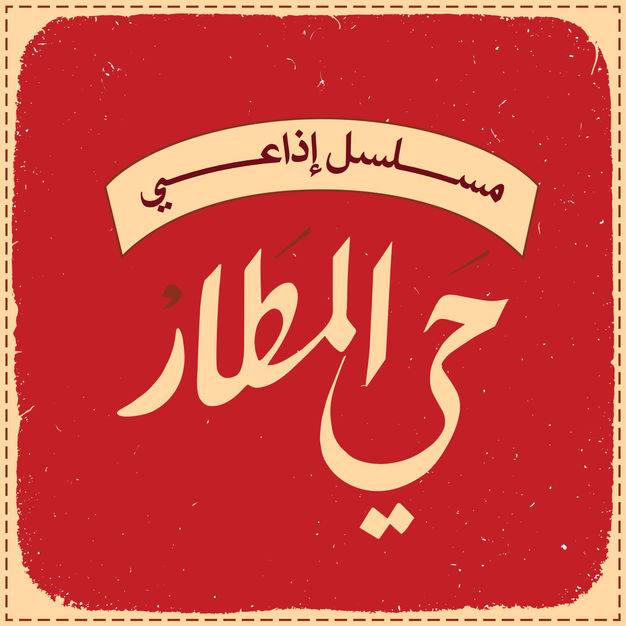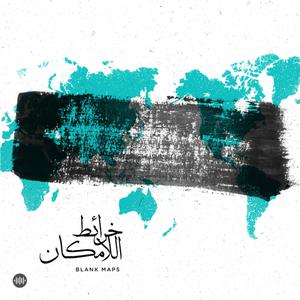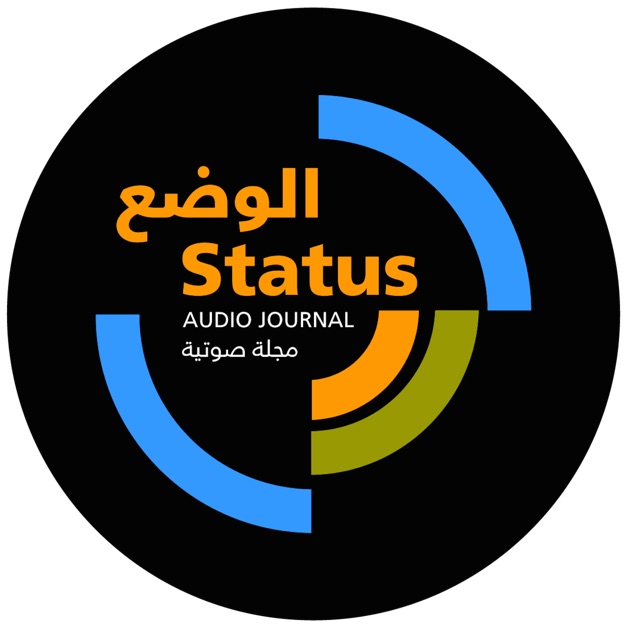
BULAQ | بولاق
Ursula Lindsey and M Lynx Qualey
BULAQ is a podcast about contemporary writing from and about the Middle East and North Africa. We talk about books written in Aleppo, Cairo, Marrakech and beyond. We look at the Arab region through the lens of literature, and we look at literature -- what it does, why it matters, how it relates to society and history and politics -- from the point of view of this part of the world. BULAQ is hosted by Ursula Lindsey and M Lynx Qualey and co-produced by Sowt.
- 40 minutes 57 secondsThis Moment
Majalla 28 is a literary magazine out of Gaza co-producing an issue with ArabLit. We talk about the work by co-editors Mahmoud al-Shaer and Mohamed al-Zaqzouq and read excerpts from that issue. After that, we talk about a particular kind of Palestinian literature – by writers serving life sentences.
Find out more about the Gaza issue at arablit.org
More writing by Heba Al-Agha, translated by Julia Choucair Vizoso, is also available at arablit.org
You can read more about the late author Walid Daqqa, who died in an Israeli prison, at Jadaliyya
Palestinian prisoner Nasser Abu Srour’s The Wall, translated by Luke Leafgren, is out now from Other Press
A Mask, the Colour of the Sky, by Palestinian writer Basim Khandaqji, won this year’s International Prize for Arabic Fiction. Khandaqji is serving three consecutive life sentences; his novel is forthcoming in English translation from Europa Editions.
Hosted on Acast. See acast.com/privacy for more information.
2 May 2024, 4:00 am - 1 hour 8 minutesGhassan Kanafani: Defiance on Every Page
Ghassan Kanafani is best known for his famous novellas, but he was many things besides a talented writer: a prolific journalist, an insightful critic and editor, a heterodox Marxist, a spokesman for the militant Popular Front for the Liberation of Palestine. He wrote and lived like he had no time to waste (which turned out to be true: he was assassinated in an Israeli car bombing at the age of 36). He remains one of the most respected and beloved of Arab icons, but his non-fiction work is less known than it should be. In 1970 he wrote a book of historical analysis: The Revolution of 1936-1939 in Palestine. Its translator, historian Hazem Jumjam, joined us for a conversation about this book on a failed revolution and everything we can still learn from it today.
Hazem Jamjoum’s translation of Kanafani’s The Revolution of 1936–1939 in Palestine is available from 1804 Books.
Mahmoud Najib’s translation of Kanafani’s On Zionist Literature is available from Ebb Books.
Kanafani’s complete works in Arabic are available from Rimal Books.
Kanafani’s Men in the Sun was adapted to film as The Dupes (1972).
Hosted on Acast. See acast.com/privacy for more information.
14 March 2024, 9:15 am - 1 hour 8 minutesWITH GAZA
This episode features writing from and about Gaza, and explores the imperative to write, between hope and hopelessness, at a time when words both seem to count enormously and to not be enough.
Show Notes
This episode’s cover art is by Chema Peral @chema_peral
Letter from Gaza by Ghassan Kanafani was written in 1956.
Mahmoud Darwish’s Silence for the Sake of Gaza is part of his 1973 collection Journal of an Ordinary Grief.
The poet Mosab Abu Toha has written about his arrest and his family’s voyage out of Gaza
Atef Abu Seif’s “Don’t Look Left: A Diary of Genocide” is forthcoming from Comma Press
Fady Jouda’s poetry collection [...] is forthcoming from Milkweed Press
You can read poetry in translation by Salim al-Naffar and Hiba Abu Nada, both killed under Israeli bombardment, at ArabLit. Other magazines that have been translating and sharing Palestinian poetry include Mizna, Fikra, LitHub, The Baffler, and Protean magazine.
The book that was removed from the curriculum in Newark is the book Sonia Nimr co-wrote with Elizabeth Laird, A Little Piece of Ground.
Ghassan Hages’ essay “Gaza and the Coming Age of the Warrior” asks: “Is it ethical to write something ‘interesting’ about a massacre as the massacre is unfolding?”
Andrea Long Chu’s essay “The Free Speech Debate is a Trap” calls for “fighting with words.”
At the end of the episode, Basman Eldirawi reads his poem “Santa” in honor of Refaat Alareer, an educator and poet who was killed on December 7.
#ReadforRefaat is part of a week of action being called for by the Publishers for Palestine collective.
Hosted on Acast. See acast.com/privacy for more information.
18 January 2024, 5:13 pm - 53 minutes 14 secondsOn Translating Arabic Literature with Robin Moger
We talk to Robin Moger about how he became a translator from Arabic and about what has changed in recent years in the field of Arabic literature and translation and what has stayed the same. Moger’s first book-length literary translation was Hamdi Abu Golayyel’s 2008 novel الفاعل, which became A Dog with No Tail. His most recent is a translation of Iman Mersal’s في أثر عنايات الزيات, which appears as Traces of Enayat from And Other Stories in the UK (2023) and Transit Books in the US (2024).
Show Notes:
This episode is produced in collaboration with the Sheikh Zayed Book Award.
The Sheikh Zayed Book Award is one of the Arab world’s most prestigious literary prizes, showcasing the stimulating and ambitious work of writers, translators, researchers, academics and publishers advancing Arab literature and culture around the globe. For more information about the award visit zayedaward.ae
Moger’s old website, Qisas Ukhra, is still available at qisasukhra.wordpress.com. The poem “The Translator’s Soliloquy,” which was read on this episode, is also there.
More information about his online and offline translations is available at his website: www.robinmoger.com/translations.
You can read an excerpt of Traces of Enayat at ArabLit.
Don’t miss our previous episode with Iman Mersal, “The Books You Need to Read and Write.”
Hosted on Acast. See acast.com/privacy for more information.
12 October 2023, 10:26 am - 46 minutes 54 secondsA Crime at the End of the Sahara
Said Khatibi’s detective novel نهاية الصحراء (End of the Sahara) is set in a remote desert city in Algeria in the Fall of 1988, when the country’s October Riots are about to break out place. The book is one of the winners of this year’s Sheikh Zayed Book Award. Khatibi explained how his writing is also a way of exploring larger historical crimes.
Show Notes:
This episode is produced in collaboration with the Sheikh Zayed Book Award.
The Sheikh Zayed Book Award is one of the Arab world’s most prestigious literary prizes, showcasing the stimulating and ambitious work of writers, translators, researchers, academics and publishers advancing Arab literature and culture around the globe.
Today’s guest, Said Khatibi, was awarded the Sheikh Zayed Book Award in 2023 in the category of Young Author, for his novel نهاية الصحراء, or “The End of the Sahara.” Khatibi is a writer and journalist who is based in Ljublana, Slovenia.
Khatibi’s 2018 novel Sarajevo Firewood was shortlisted for the International Prize for Arabic Fiction in 2020, and he won the Katara Prize for his 2016 novel Forty Years Waiting for Isabel. His Sarajevo Firewood was translated by Paul Starkey and is available from Banipal Books.
Edith Maud Hull's 1919 novel The Sheik was adapted into a 1921 film of the same name starring Rudoph Valentino.
The Sheikh Zayed Book Award Translation Grant is open all year round, with funding available for fiction titles that have won or been shortlisted for an award. Publishers outside the Arab world are eligible to apply - find out more on the Sheikh Zayed Book Award website at: zayedaward.ae
Hosted on Acast. See acast.com/privacy for more information.
14 September 2023, 7:17 am - 1 hour 19 minutesRemembering Hamdi Abu Golayyel
Egyptian novelist Hamdi Abu Golayyel died last month at the age of 56. In this episode, we remember Hamdi and his one-of-a-kind literary career, telling the story of Egypt’s laborers, Bedouin, and migrants.
Show Notes:
Egyptian Novelist Hamdi Abu Golayyel Dies at 56: ‘There Was No One Like Him’
A Special Section at ArabLit on Abu Golayyel, Bedouin Poetry, and ‘The Men Who Swallowed the Sun’
Books available in translation are: Thieves in Retirement (translated by Marilyn Booth), A Dog with No Tail (translated by Robin Moger), and The Men Who Swallowed the Sun (translated by Humphrey Davies.
Please support BULAQ! You can donate to our fundraiser for the 2023 season at donorbox.org/support-bulaq.
Hosted on Acast. See acast.com/privacy for more information.
13 July 2023, 7:06 am - 1 hour 31 secondsInside The World of Lebanese Comics with Rawand Issa
Comics artist Rawand Issa joins us to talk about her book Inside the Giant Fish (trans. Amy Chiniara, Maamoul Press); her path from journalism to graphic art; artist groups and collectives across the region; the “new school of Arab comics,” and the challenges of making a living as a comics artist. We also talk about a few other Lebanese graphic novels, particularly Lamia Ziadé’s My Port of Beirut, translated to English by Emma Ramadan, and Lena Merhej’s I Think We’ll Be Calmer in the Next War.
Show Notes:
You can find several of Rawand’s books available from Maamoul Press: http://maamoulpress.com.
Also read Rawand’s “Being Illegal is Unbearable at The Nib, her ماذا نفعل في مواجهة استمرار العنف ضد النساء؟ at Jeem and her untitled work in Chime.
And if you missed it, there’s a discussion with Rawand and translator Amy Chiniara about Inside the Giant Fish at ArabLit.
Samandal magazine is on Instagram (@samandalcomics), and you can find them at samandal-comics.org.
You can buy copies of the magazine Corniche at the Sharjah Art Foundation website.
Lab619 (@lab619), Skefkef (@skefkefmag/), and Fanzeen Comics (@fanzeencomics/) are on Instagram, while TokTok has a website, toktokmag.com.
Rawand Issa (@rawand.issa_) and Amy Chiniara (@amychiniara) are both on Instagram, too.
Lamia Ziadé’s My Port of Beirut, translated to English by Emma Ramadan, from Pluto Press
Lena Merhej’s We Will Be Calmer in the Next War is available online.
Please support BULAQ! You can donate to our fundraiser for the 2023 season at donorbox.org/support-bulaq.
Hosted on Acast. See acast.com/privacy for more information.
15 June 2023, 12:17 am - 58 minutes 6 secondsSawad Hussain’s Translation Advice
Translator Sawad Hussain joins us to talk about the challenges of making a living as a translator, the art of co-translation, her focus on Arabic literature from Africa and the Gulf, and the advice she gives to her translation mentees. We also highlight three of Sawad’s recent and forthcoming translations: Haji Jaber’s Black Foam, Bushra al-Maqtari’s What Have You Left Behind, and Stella Gaitano’s Edo’s Souls.
Show Notes:
Haji Jaber’s Black Foam, co-translated by Sawad Hussain and M Lynx Qualey, came out in February from AmazonCrossing. You can read reflections on the novel at Hadara magazine and listen to a sample at Amazon.
Bushra al-Maqtari’s What Have You Left Behind was published, in Sawad’s translation, by Fitzcarraldo. As Sawad mentions, there is an audio long read at The Guardian.
Stella Gaitano’s Edo’s Souls is forthcoming from Dedalus Press in August in Sawad’s translation. You can read an excerpt and a review at ArabLit, as well as other work by Gaitano.
You can find our fundraiser for the 2023 season at donorbox.org/support-bulaq.
Hosted on Acast. See acast.com/privacy for more information.
11 May 2023, 8:44 am - 56 minutes 35 secondsLooking Back From Iraq
Twenty years after the disastrous and mendacious US invasion of Iraq, we take a look at writing from Iraq: memoirs, poems and blog posts. Shalash the Iraqi is a collection of such posts – a satirical, surreal, and affecting panorama in life in a Shia suburb of Baghdad in the early years of the occupation.
Show Notes:
An excerpt from Gaith Abdul-ahad’s memoir A Stranger In Your Own City ran recently in the Guardian
Shalash The Iraqi, trans. Luke Leafgren, is a collection of blog posts written in 2005-2006
An excerpt from Faleeha Hassan’s memoir War and Me, tans. William Hutchins ran on Arablit.org.
The Book of Trivialities, by Majed Mujid, trans. Kareem James Abu-Zeid
The only English-language collection of Sargon Boulous’ self-translated poetry is Knife Sharpener from Banipal Books. You can find a list of his poems available online here.
You can make a donation to support BULAQ's 2023 season here: https://donorbox.org/support-bulaq
Hosted on Acast. See acast.com/privacy for more information.
6 April 2023, 9:19 am - 1 hour 7 minutesLove and its Discontents
We wandered through Arabic poetry and prose to talk about many different forms of literary love: regretful love, unreciprocated love, bad love, vengeful love, liberating love, married love.
We read this poem by Núra al-Hawshán:
“O eyes, pour me the clearest, freshest tears
And when the fresh part’s over, pour me the dregs.
O eyes, gaze at his harvest and guard it.
Keep watch upon his water-camels, look at his well.
If he passes me on the road
I can’t speak to him.
O God, such affliction
And utter calamity!
Whoever desires us
We scorn to desire,
And whom we desire
Feeble fate does not deliver.”The Núra al-Hawshán poem, translated by Moneera al-Ghadeer, has a modern musical adaptation on YouTube produced by Majed Al Esa.
Yasmine Seale’s translation of Ulayya Bint El Mahdi. This poem and others were set to music on the album “Medieval Femme.”
Do’a al-Karawan (“The Nightingale’s Prayer”) by Taha Hussein
I Do Not Sleep, Ihsan Abdel Kouddous, trans. Jonathan Smolin
The Cairo Trilogy, Naguib Mahfouz (1956-57)
Al-Bab al-Maftouh (The Open Door) Latifa al-Zayyat, trans. Marilyn Booth (1960)
All That I Want to Forget, by Bothayna Al-Essa, translated by Michele Henjum.
Rita and the Rifle, Mahmoud Darwish, made into a song by Marcel Khalife.
Ode to My Husband, Who Brings the Music by Zeina Hashem Beck
Hosted on Acast. See acast.com/privacy for more information.
2 March 2023, 8:43 am - 58 minutes 28 secondsShould You Turn Down That Literary Award?
It’s literary prize season! When the Sawiris Cultural Awards were announced at the start of 2023, novelist Shady Lewis Botros turned his novel award down, launching a storm of criticism, defense, and discussion. Is it bad manners or good politics to turn down a prize? How do different prizes affect the literary landscape? How is the 2023 prize season shaping up?
Show Notes:
Mada Masr published “A conversation with Shady Lewis Botros on the genealogy of literary refusal”
The International Prize for Arabic Fiction recently announced their 2023 longlist, with a historically high number of women writers (half).
Also in Jan 2023, Banipal Prize judges announced that two novels had won their 2022 prize. By coincidence, we did a joint episode on those two novels.
PEN America recently announced their lit-prize longlists. Iman Mersal’s The Threshold, translated by Robyn Creswell, made the poetry-in-translation longlist.
In December 2022, Fatima Qandil’s Empty Cages won the Naguib Mahfouz medal, and she said it was the first time she’d won a prize.
Hosted on Acast. See acast.com/privacy for more information.
2 February 2023, 12:37 pm - More Episodes? Get the App
Your feedback is valuable to us. Should you encounter any bugs, glitches, lack of functionality or other problems, please email us on [email protected] or join Moon.FM Telegram Group where you can talk directly to the dev team who are happy to answer any queries.
 Kerning Cultures
Kerning Cultures
 Hay el Matar | حي المطار
Hay el Matar | حي المطار
 Blank Maps | خرائط اللامكان
Blank Maps | خرائط اللامكان
 Status/الوضع
Status/الوضع